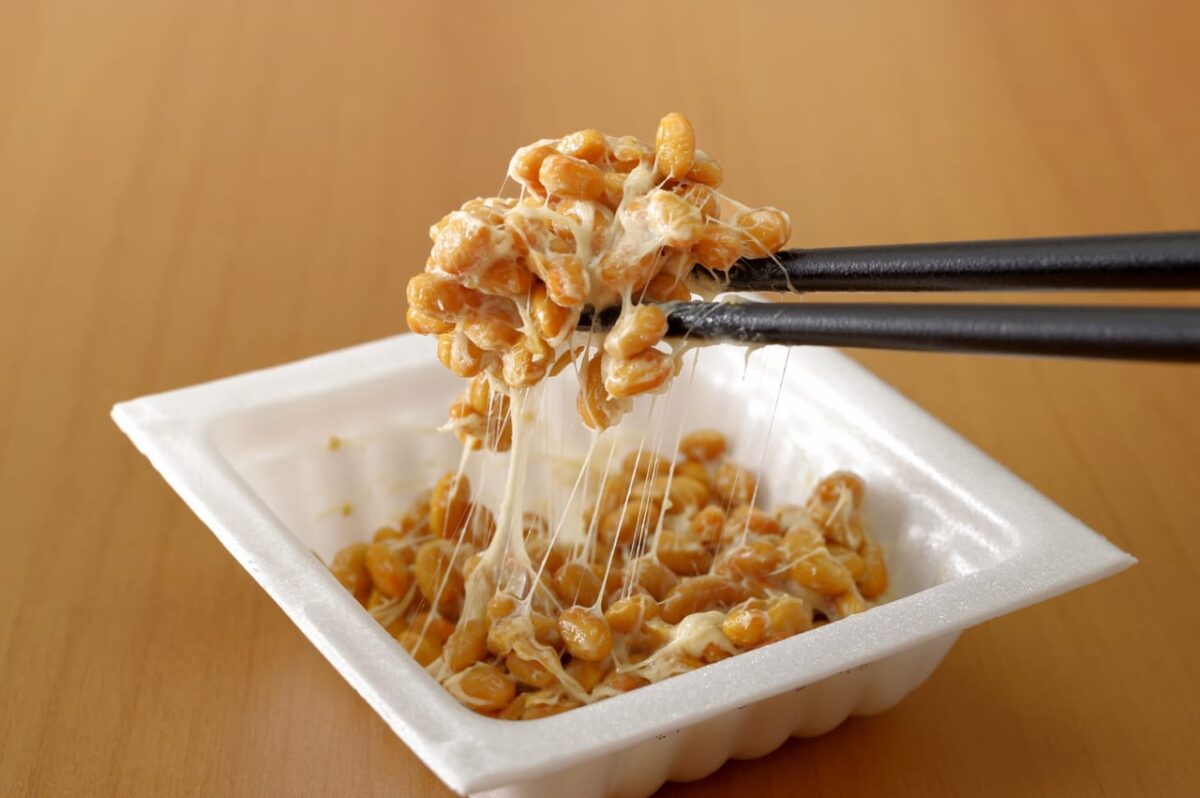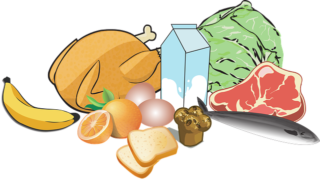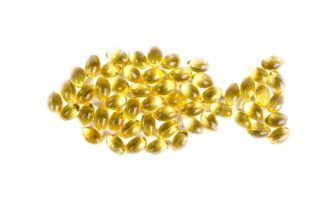A healthy gut is essential for overall health. If you have been struggling with digestive issues, adding prebiotics to your diet may be the solution. Prebiotics are non-digestible fibers that feed the good bacteria in your gut and promote a healthy microbiome. Here is a list of 10 of the best prebiotic foods to add to your diet for optimal gut health.
1. Green Bananas
A green banana contains significantly more resistant starch than a yellow banana. Resistant starch is a type of dietary fiber that resists digestion and passes through the body relatively unchanged. It has been linked to beneficial effects on blood sugar, cholesterol and other markers of health.
The difference in resistant starch content between a green and yellow banana is quite significant. Green bananas contain up to four times as much resistant starch. This is because resistance starch forms before the starches in a banana ripen and convert into simple sugars.
Research suggests that eating these green bananas helps promote the growth of beneficial bacteria in your gut, reduces bloating and improves digestion.
2. Asparagus
Inulin is a type of dietary fiber found naturally occurring in asparagus and other plant-based foods.
Inulin helps to feed and promote the growth of beneficial bacteria in the gut, thereby improving digestive health. This is because it provides food for probiotics. This is necessary for maintaining the balance of good bacteria in our gastrointestinal tract.
Due to its anti-inflammatory properties, inulin helps to reduce levels of inflammation within the gut. Research has shown that consuming foods rich in inulin can help strengthen immunity and reduce susceptibility to certain illnesses.
Apart from being beneficial to our intestinal health, inulin also has various other metabolic benefits. These include: reduced blood sugar levels, improved cholesterol levels and even weight loss. All these factors make inulin a must-have for maintaining intestinal health and overall well-being.
3. Apples
Apples are a great source of prebiotics because they contain pectin Pectin is a type of fiber that feeds good bacteria in the gut and helps support regular digestion. Eating an apple with its skin on can give you an extra dose of prebiotics.
Pectin also helps to keep your digestive system moving such that food moves through at an appropriate rate. This prevents constipation and keeps the gut functioning optimally. Additionally, pectin may help to reduce inflammation in the intestines, as well as supporting healthy cholesterol levels. Research has shown that pectin can be beneficial for reducing risk factors related to both heart disease and stroke.
Finally, pectin has been found to have antimicrobial properties, helping to fight off harmful bacteria and viruses that can cause digestive upset. All in all, pectin is an essential component of maintaining optimal intestinal health and should be consumed regularly for maximum benefit.
4. Garlic
Garlic contains fructooligosaccharides (FOS) which act as prebiotics and help stimulate the growth of good bacteria in your gut. FOS can also suppress bad bacteria that can cause digestive problems like diarrhea or constipation. Additionally, garlic has antibacterial, antiviral, antifungal, and anti-inflammatory properties that help improve overall health and wellbeing.
5. Onions
Onions are another great source of FOS which can help balance out the microbiota in your gut and reduce inflammation throughout your body. They also provide antioxidants that can improve immune system functioning as well as reduce risk factors for chronic diseases such as heart disease and cancer.
6. Oats
Oats are rich in beta-glucan fiber which helps feed beneficial bacteria in the gut while improving digestion by increasing stool bulk and reducing constipation . Oats also have cholesterol lowering effects which can help reduce risk factors for heart disease.
Studies have also demonstrated that beta-glucan can help lower cholesterol levels by reducing “bad” LDL cholesterol, making it an important component of a heart healthy diet.
Additionally, reducing high cholesterol levels can help reduce risk factors associated with cardiovascular disease such as stroke, heart attack, and other chronic conditions. Finally, beta-glucan has been found to be effective in stimulating immune responses such as: increasing lymphocyte production, increasing cytokine secretion leading to better overall immunity and wellbeing. Therefore, consuming foods rich in beta-glucans is an excellent way to improve your digestive health while promoting overall well-being.
7. Barley
Barley is also an excellent source of beta-glucan fiber which helps promote good bacterial growth while aiding digestion by increasing stool bulk and reducing constipation.
8. Jerusalem Artichokes
These vegetables have long been used as a natural remedy to improve digestive health because they contain high amounts of dietary fiber known as Fructans.
Fructans are an important component of maintaining intestinal health. They are classified as a type of dietary fiber, and they can help to improve digestive issues such as bloating, gas, cramping, diarrhea, or constipation.
Fructans act as prebiotics by feeding beneficial bacteria in the gut and helping to promote the growth of microorganisms that support a healthy balance in the intestines.
Studies have even suggested that Fructans may help reduce the risk for some chronic diseases such as cardiovascular disease, Type 2 diabetes, and certain types of cancer. Furthermore, Fructans help to regulate blood glucose levels and support regular elimination of waste from the body.
9. Flaxseeds
Flaxseeds are one of nature’s richest sources of a soluble fiber known as mucilage. Mucilage is a beneficial substance for intestinal health. It is a substance created by plants as a defense mechanism, and it serves many health benefits in humans. It works as a demulcent that helps to lubricate the intestinal walls, reducing inflammation and irritation.
Mucilage provides an excellent source of soluble fiber which can help to reduce cholesterol levels, improve digestion and add bulk to stool for easier movement through the gastrointestinal tract.
In addition to helping with regularity, mucilage may also be helpful for those who suffer from irritable bowel syndrome due to its calming effect on the intestines. The fiber in mucilage helps to form a gel-like substance that binds with toxins and other waste products in the colon, preventing their re-absorption into the body. This could also potentially reduce symptoms associated with inflammatory bowel conditions such as Crohn’s disease or ulcerative colitis.
Furthermore, research suggests that consuming foods containing mucilage may have prebiotic effects, promoting good gut bacteria health. This could allow for better digestion of food and optimal absorption of vitamins and minerals into the bloodstream.
Finally, consumption of mucilage may help promote regular elimination which can reduce bloating and discomfort associated with constipation or irregularity. All these properties taken together make it clear that mucilage is an important part of maintaining optimum intestinal health and wellbeing.
10. Soybeans
Soy beans have been touted as a superfood for its many health benefits, especially when it comes to intestinal health. Studies have shown that consuming soy beans can reduce the risk of developing intestinal problems such as constipation, ulcerative colitis, and irritable bowel syndrome.
Additionally, due to its high levels of dietary fiber, soybeans can help to support healthy digestion and regularity by maintaining a balance between bacteria in the gut. The high amount of isoflavones found in soybeans helps to reduce inflammation associated with these types of conditions, while providing important antioxidants that fight off free radicals and protect against cell damage.
Those who suffer from conditions such as Crohn’s disease may find relief from their symptoms through the consumption of soybeans. Furthermore, studies have indicated that consuming foods rich in isoflavones can reduce cancer risk by inhibiting the growth of certain cancer cells. Not only are there physical benefits, but mental benefits too. Due to the presence of phytoestrogens in soybeans, they may also be able to help protect against depression and anxiety. All in all, eating soybeans on a regular basis could be beneficial in maintaining intestinal health.
Conclusion
Eating prebiotic foods is an important part of maintaining a healthy microbiome and optimizing overall health outcomes. From apples to soybeans, there are plenty of delicious options for incorporating prebiotics into your diet.
By making sure you include these 10 superfoods into your daily routine you will be giving yourself all the nutrition you need to keep your body running smoothly!
What can I do beyond steroids?
If your child has eczema, you are not alone. Eczema is a common skin condition affects about 10 to 20 percent of infants and about 3 percent of adults and children. While there is no cure, eczema can be managed with medical treatments and home care. The goal is to reduce inflammation and itchiness, and to prevent new flare-ups. When using steroidal creams for treatment, many parents wonder if there are natural ways to soothe their child’s eczema flare-ups?
The good news is that there are! When used alone or together with steroids, these natural treatments can help manage your child’s eczema flare-ups:
Food Sensitivity Testing
With eczema, the skin is a reflection of what’s going on inside the body – specifically in the gut. A food sensitivity test can help assess intestinal permeability (leaky gut) and inflammation. Once problem foods are identified, they can be eliminated from the diet, which can help reduce inflammation and improve gut health.
Probiotics
Probiotic strains may help balance the immune system and reduce inflammation. Probiotics can be taken orally in the form of supplements or food (such as yogurt).
Omega 3 Fatty Acids
These healthy fats promote a healthy lipid bilayer, which helps keep skin hydrated and supple. Omega 3 fatty acids can be taken orally in supplement form or applied topically as part of a natural eczema cream.
Vitamin D3
Vitamin D3 is a natural anti-inflammatory vitamin that helps boost the immune system. It can be taken orally in supplement form or applied topically as part of a natural eczema cream.
Zinc
Zinc is an essential mineral that plays a role in immune function and tissue repair. It can be taken orally in supplement form or applied topically as part of a natural eczema cream.
Conclusion
While there is no cure for eczema, it can be managed with medical treatments and home care. When used alone or together with steroids, these natural treatments can help soothe your child’s eczema flare-ups: food sensitivity testing, probiotics, omega 3 fatty acids, vitamin D3, zinc.
Book an appointment today!
Do you feel like you’re always getting sick? Are you constantly battling colds and the flu? If so, you may need to boost your immunity. Luckily, there are a number of natural treatments that can help. In this blog post, we will discuss some of the best ways to improve your immune system naturally.
Vitamin D for immunity
Vitamin D is essential for a strong immune system. It helps the body to produce antibodies, which fight infection. Vitamin D can be found in fatty fish, eggs, and fortified milk. You can also get Vitamin D from exposure to sunlight.
Trouble keeping up with vitamin D supplements and worried about sun exposure? Not to worry, at my clinic we offer the option of a vitamin D injection. Under professional supervision, this is a safe and effective way to boost vitamin D levels quickly.
Vitamin C for immunity
Another important nutrient for immunity is Vitamin C. Vitamin C helps the body to create white blood cells, which fight infection. Vitamin C can be found in citrus fruits, tomatoes, bell peppers, and broccoli.
Intravenous vitamin C is a great way to get a high dose of Vitamin C. By bypassing digestion, IV vitamin C can boost levels quickly. Intravenous vitamin C can also increase blood concentrations at levels that directly kill pathogens and inhibit cancer growth.
Zinc for immunity
Zinc is another important mineral for immunity. It helps the body to create new cells and enzymes that fight infection. Zinc can be found in oysters, beef, pork, chicken, and beans.
Zinc can also be added to intravenous infusions for an added immune system boost.
Elderberry Syrup
If you’re looking for a kid friendly and great tasting way to boost your immunity, elderberry syrup is a great option. Elderberries are rich in Vitamin C, Vitamin A, and antioxidants. They have been shown to reduce inflammation and fight infection. You can find elderberry syrup at most health food stores.
Ginger for immunity
Ginger is another great option for boosting your immunity. Ginger is a natural anti-inflammatory and can help to reduce congestion. It can also help to soothe a sore throat. You can find ginger in the form of capsules, tea, or syrup.
Garlic for immunity
Garlic is another excellent food for boosting your immunity. Garlic is rich in Vitamin C, sulfur, and antioxidants. It has been shown to fight infection and reduce inflammation. You can add garlic to your food or take it in supplement form.
Selenium for immunity
Selenium is a trace mineral that is important for immunity. Selenium helps the body to produce antibodies, which fight infection. It can be found in Brazil nuts, tuna, shrimp, and eggs.
Selenium can also be added to an intravenous infusion for an added immune boost.
Vitamin A for immunity
Vitamin A is an important nutrient for immunity. Vitamin A helps the body to produce white blood cells, which fight infection. Vitamin A can be found in sweet potatoes, carrots, dark leafy greens, and squash.
Probiotics for immunity
Probiotics are live bacteria that are good for your gut health. Probiotics help to keep the balance of good and bad bacteria in your gut. This can help to improve digestion and boost immunity. You can find probiotics in yogurt, kimchi, sauerkraut, and kombucha.Probiotic supplements are also available.
There you have it! These are just a few of the best ways to boost your immunity naturally. By including these foods and supplements in your diet, you can help to keep yourself healthy and avoid getting sick. In individuals requiring an extra boost, injection and intravenous treatments are available and effective. Do you have any other favourite natural immunity boosters? Share them with us in the comments
Multiple Sclerosis is a complex disease; those living with it need a simple approach. A treatment approach should appreciate the physiology of the disease process without neglecting the human body as a holistic system, and the patient as a person.
Naturopathy is an ideal philosophy of medicine for the treatment of M.S. as it aims to address disease processes and symptoms without loosing sight of the patient as an individual.
I chose to focus in neurological disease early into my professional career and as a result I have come across many complex chronic diseases of the nervous system including all subtypes of M.S. When patients come for their initial visit it is not uncommon to be privy to a long list of life events that have impacted the disease, symptoms that have evolved over years and medications that have been tried, stopped and tried again.
It’s easy to see why the practitioner on the other end of the patient with M.S. can become overwhelmed and confused, loosing sight of the big picture, dismissing the patients needs and goals. Unfortunately, this medical tunnel vision re-aimed at addressing each and every concern translates into complex and confusing treatment plans that most patients cannot comply with. I sympathize with these patients who have to remember to take dozens of pills while also dealing with a life altering condition.
To make matters worse, these confusing treatment plans hardly ever work because they tend to forget that the human body is not a series of islands, rather it’s a society striving to work in harmony and balance. The key to developing a simple, understandable and effective treatment plan is to figure out what is out of balance and how do we bring it back.
A typical treatment plan for M.S. has three parts: Foundations, The Immune System and Specific Symptoms. Since we are working toward bringing the body back into balance it is important to take the time to hear the full story and timeline of how the condition started and progressed. Often during the initial consultation it will become clear as to what type of events precluded the first attack and how these events triggered a physiological imbalance.
Foundations
It’s a futile effort to try and treat symptoms while the very basics of health and wellness are not fortified. The foundations of health can be summed up into three parts: Sleep, Diet and Exercise.
Sleep is the healing chamber for the body. Recently studies have shown that the brain undergoes a type of detoxification process while we sleep. Many neurodegenerative diseases have been correlated to poor sleeping habits. It is common to see sleeping issues in patients with M.S. In fact I have had a few cases where years of terrible sleep may have contributed to the patient experiencing their first symptoms related to M.S. This makes sense in the light of the new research demonstrating how important sleep is in clearing neurotoxic compounds from the brain.
One of the most important protocols I put together for my M.S. patients is aimed at improving sleep. This is achieved through sleep hygiene education and supplements that have been carefully vetted over my years in practices for their effectiveness in improving sleep initiation and maintenance.
Diet is important for a number of reasons, some are general and some are specific to M.S. The food we eat and its relation to our digestive tract determines our nutritional robustness.
M.S. is a chronic neuro-inflammatory state and therefore patients with M.S. will be using up vitamins and minerals involved in inflammatory processes at a greater rate than in a healthy control group. Therefor it’s important to determine what the nutritional status is of the M.S. patient (through consultation and specific lab tests), bring it back into balance and correct deficiencies. Otherwise the body will be unable to cope with the inflammatory process and the disease will progress.
It is also important to identify any food allergens, intolerances and sensitivities in the M.S. patient for these will perpetuate the inflammation. Chronic inflammation has a detrimental effect on the immune system, which I will discuss further in the next part of the treatment plan.
Another aspect related to diet is the health of the gastrointestinal tract and more specifically the micro-biome (the bacteria of the gut). A healthy micro-biome is important for detoxification, nutrient absorption and immune system regulation. A protocol addressing diet will focus on testing for nutritional deficiencies, food sensitivities, specific dietary guidelines for M.S. and supportive supplements where necessary.
A good dietary resource specific to M.S. is The Wahls Protocol.
 Exercise is a powerful health modulator and is under-appreciated for its importance in chronic disease and specifically M.S. Often exercise comes in the form of physiotherapy in progressive M.S. and the first thing I will do with a patient is set them up with one of the physiotherapists in my clinic (if they don’t already have a physiotherapy program). Often patients newly diagnosed with M.S. are neglected by the medical system in terms of exercise. In-patient rehab programs are inadequate, scooters and wheelchairs are promoted over therapy. Exercise and physiotherapy are instrumental in promoting neuroplasticity, decreasing inflammation, improving energy metabolism, maintaining and improving upon range of motion.
Exercise is a powerful health modulator and is under-appreciated for its importance in chronic disease and specifically M.S. Often exercise comes in the form of physiotherapy in progressive M.S. and the first thing I will do with a patient is set them up with one of the physiotherapists in my clinic (if they don’t already have a physiotherapy program). Often patients newly diagnosed with M.S. are neglected by the medical system in terms of exercise. In-patient rehab programs are inadequate, scooters and wheelchairs are promoted over therapy. Exercise and physiotherapy are instrumental in promoting neuroplasticity, decreasing inflammation, improving energy metabolism, maintaining and improving upon range of motion.
My clinic specializes in neurological rehabilitation using the Bobath Physiotherapy approach. Physio-Logic
The Immune System
Multiple Sclerosis is an autoimmune condition and therefore one cannot overlook the role of the immune system. Autoimmunity basically translates to a confused immune system that has targeted healthy cells and tissues rather than disease. The philosophy behind this part of the treatment plan addresses two questions: how the immune system became confused and how to bring it back into harmony.
There are many theories as to the cause of M.S., to name a few: Genetics, Vitamin D deficiency, Environmental Toxin Exposure, Candida Overgrowth, Dairy Protein Antigen Confusion and Leaky Gut Syndrome. There are truths to be told within many of these theories but in reality we just don’t know exactly what causes M.S. Some things we do know are the triggers for symptom activation, and things that reduce the risk of developing M.S. We know that stress (physical and/or emotional) often precipitate symptom relapse and progression. We also know that having adequate vitamin D levels are protective toward the development of M.S.
 Vitamin D is not longer thought of as merely a bone-building vitamin. In reality it is more of a hormone and has a very important role in maintaining the health of the immune system. Step one of addressing the immune system is making sure the patient has optimal levels of vitamin D and if not, to adjust those levels using specific supplemental doses of vitamin D along with calcium and regular follow-up blood work.
Vitamin D is not longer thought of as merely a bone-building vitamin. In reality it is more of a hormone and has a very important role in maintaining the health of the immune system. Step one of addressing the immune system is making sure the patient has optimal levels of vitamin D and if not, to adjust those levels using specific supplemental doses of vitamin D along with calcium and regular follow-up blood work.
Stress, whether it physical or emotional, causes a burden on the body. Most of the time we are able to cope with short durations of stress; however, when the stressful event is severe enough or lasts long enough it can impact the immune system in a negative way. Chronic stress can affect the immune system in two ways: Creating chronic inflammation that harms tissues and suppressing immune cells needed to fight infection.
When the immune system is under prolonged stress it becomes tired and makes mistakes, much like how we feel when under stress. One of these possible mistakes is mounting an autoimmune attack, harming normal healthy tissue rather than disease. Prolonged stress also depletes natural anti-inflammatory compounds like cortisol, allowing inflammation to run amuck. Therefore the protocol built around the immune system is aimed at decreasing stress on the immune system and bringing the immune system back into balance.
Anything that can be causing unnecessary inflammation needs to be dealt with and therefore chronic infections and food sensitivities must be addressed. Specific lab testing is used to investigate infections and sensitivities. Common food sensitivities in M.S. patients include: Dairy, Gluten, Yeast and Egg.
Once the major obstacles to a healthy immune system are removed we can work toward assisting the immune system back into a balanced state. The most important cells involved in bringing the immune system back into balance are “regulatory T cells” also known as “T suppressor cells”. These cells maintain tolerance in the immune system preventing autoimmunity. Part of the protocol is therefore aimed at supporting these cells. Some compounds that influence regulatory T cells are: probiotics, vitamin D, vitamin A, Omega 3 fatty acids and food sensitivities.
Specific Symptoms
Treating foundations and immune system irregularities take time, therefore it is almost equally important to address the specific symptoms of the patient. Fatigue, weakness and pain are often obstacles to important foundational concerns like sleep and exercise.
Fortunately, there are many great strategies within Naturopathic medicine to help address the most common symptoms in M.S. namely: Weakness, Spasticity, Fatigue, Pain, Bowel and Bladder issues. There are dozens of supplements that have shown promise in treating the common symptoms of M.S. The art of the practitioner is in choosing the right compounds for the right patient. As an example, medical marijuana can be very effective for spasticity, pain, bladder dysfunction and sleep but can exacerbate weakness. A good practitioner with experience in treating M.S. will know how to choose the appropriate medications for the patients needs.
Multiple Sclerosis is a complex condition with many subtypes and many different ways it affects the individual patient. Naturopathic medicine aims to treat the root cause of disease while also addressing the individual concerns of the patient. The treatment plan can be summed up into three areas: Foundations, Immune System and Specific Symptoms. This helps direct the practitioner toward the right approach and simplifies the philosophy behind the treatment, improving upon compliance and therefore patient outcomes.
[button size=”btn-large” link=”https://doctorshawn.ca/contact-us/” target=”_blank” ]Call us today![/button]
Do you give your kids probiotics?
Every year it seems like the back to school commercials start to pop up earlier and
earlier in the summer months. Although these commercials are aimed at bringing
parents into office supply and clothing stores in prep for their kids returning to
school, as parents we can also use this time to implement nutritional strategies to
help our kids excel during the school year.
Besides the obvious beneficial lifestyle approaches like eating a balanced nutrient
rich diet and daily exercise, there are a few specific recommendations that may help
your kids have the edge when it comes to starting school.
[banner ]Probiotics[/banner]
Probiotics are live bacteria cultures that seem to have varying health benefits when
introduced into our gastrointestinal tract. Probiotics are naturally found in many
fermented foods such as yogurt, kefir, miso, tempeh, sauerkraut and kombucha. It is
believed that as a species, fermented foods played a larger role in our diet as we
evolved and our bodies have grown to rely on these bacterial cultures for optimal
health and wellbeing. Our modern “western” diet has been relatively low in these
fermented foods and there have been hypothesis relating many chronic diseases of
the gastrointestinal tract and immune system back to imbalanced gut bacteria.
Subsequently we have witnessed a surge in probiotics being offered in supplemental
form as a way to help restore this balance. It is important that I stress the fact that
probiotics alone are not the complete picture with regard to a healthy
gastrointestinal and immune system but research has suggested that they do play a
part.
Probiotics help boost the immune system – with kids heading back indoors and
spending large amounts of time in classrooms with each other (including daycare),
there is a dramatic increase in germ exposure and potential for kids to fall prey to
illness. In one study, 326 children aged 3-5 years were randomly assigned to
receive, in double-blind fashion, probiotic supplementation. Treatments were given
twice per day in divided doses for 6 months, including the winter season. Compared
with placebo, the probiotic group had the following results; fever reduction 53-73%,
cough reduction 41-62%, decreased runny nose 28-59%, decreased need for
antibiotics 68-82%, reduced absence from school 28-32%.
Probiotics help with allergies – Heading back indoors can trigger many kids who
are especially allergic to dusts and molds. With regard to asthmatic children with
allergic rhinitis, studies have shown the use of probiotics resulted in a significant
reduction in the inflammatory immune chemistry produced by peripheral blood
mononuclear cells. Further studies have shown specific down-regulation of T cells
(immune cells), which beneficially alter the balance of pollen specific antibodies in
seasonal allergic rhinitis. In short – probiotics lower the allergic load and decrease
inflammation.
Probiotics help with mood – Recent research is showing new gut-brain
connections as happy gut ecology seems to make for happier brains. In one
particular study, anxious mice dosed with probiotics showed lower levels of anxiety,
decreased stress hormones, and even increased brain receptors for
neurotransmitters vital in curbing worry, anxiety and fear. With better mood comes
greater ease and ability to learn in school settings and beyond.
Stay tuned for part 2 which will focus on cold/flu prevention and treatment.
Book a consultation with our Naturopathic Doctor Shawn Meirovici for
more information on child-friendly probiotic strains and dosages.
[button size=”btn-large” link=”https://doctorshawn.ca/contact-us/” target=”_blank” ]Book Now[/button]
Leyer, GJ et al. Probiotic effects on cold and influenza-like symptom incidence
and duration in children. Pediatrics 2009; 124-179.
Walker, WA. Mechanisms of action of probiotics. Clin Infect Dis. 2008; 46 (Suppl
2): S87-91.
Yang, G et al. Treatment of Allergic Rhinitis with Probiotics: An alternative
approach. N Am J Med Sci. Aug 2013; 5 (8): 465-68.
Javier, AB, Forsytthe, P & Cryan, J. Ingestion of Lactobacillus strain regulates
emotional behavior and central GABA receptor expression in mice via the vagus
nerve. Proc Natl Acad Sci USA. Sep 20, 2011; 108(38): 16050-55.













